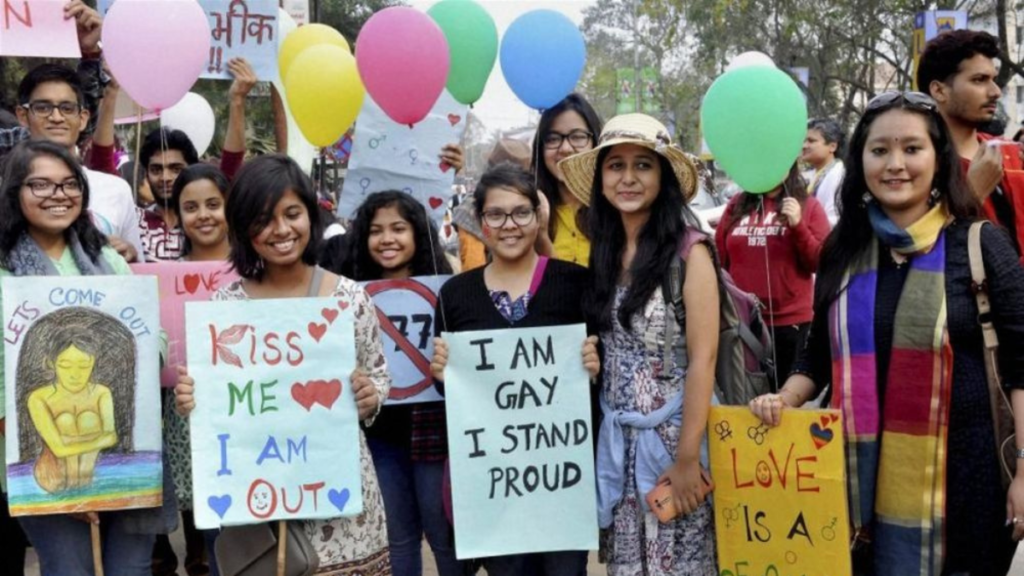
Homosexuals are as normal as “you” and “me”. But they are banished and persecuted by law just because they love “their kind.” And branded ‘queer’ and ‘aberrant’ – squarely not what they are.
Section 377, IPC: Irrelevance in Modern Context:
Section 377 of the Indian Penal Code was enacted by the British in 1860. Ironically, the British drafted this section while replacing permissive Indian attitudes towards sex with oppressive ones. This law was repealed in Britain in 1967. This section criminalises “sex crimes against the natural order.” What constitutes a natural order is nowhere defined. Still, court decisions over the past century and a half have extended the application of this section to all possible forms of sexual expression between two men. Attempts have been made, without success, to apply the law to cases of homosexuality whenever the law or authorities come across them. Homosexuality is criminalised in India under colonial rule dating back to the mid-19th century.
Section 377 of the IPC, assembled in 1860, states:
Any person who voluntarily has physical relations with a man, woman, or animal, contrary to the order of nature, shall be punished with life imprisonment or imprisonment for a term not exceeding ten years and a fine.
So why is this a problem?
We know that governments have no authority to interfere in the private sexual practices of two consenting adults, regardless of their interpretation of what constitutes natural or unnatural sexual conduct. Repeatedly insisting on cultural arguments risks jeopardising the gains made by the women’s rights movement or by the civil rights movement, the movement to elevate Dalits and other oppressed castes. There is a problem- a multicultural and tolerant society, achievements in pursuing secularism, etc. All these movements are against the belief systems of the prevailing majority, and we are losing all their accomplishments. It’s a price that I don’t think is worth it.
We know that governments have no authority to interfere in the private sexual practices of two consenting adults, regardless of their interpretation of what constitutes natural or unnatural sexual conduct. Repeatedly insisting on cultural arguments risks jeopardising the gains made by the women’s rights movement or by the civil rights movement, the movement to elevate Dalits and other oppressed castes. There is a problem- a multicultural and tolerant society, achievements in pursuing secularism, etc. All these movements are against the belief systems of the prevailing majority, and we are losing all their accomplishments. It’s a price that I don’t think is worth it.
Why is homosexuality considered a crime?
Laws around the World:
Events like Mardi Gras in Sydney, Midsummer in Melbourne, Gay and Lesbian Pride in Johannesburg, Women’s Celebration Week in Greece and the Gay and Lesbian Film Festival in Lisbon represent the essence of being gay.
Positive progress at the international level:
Conclusion: